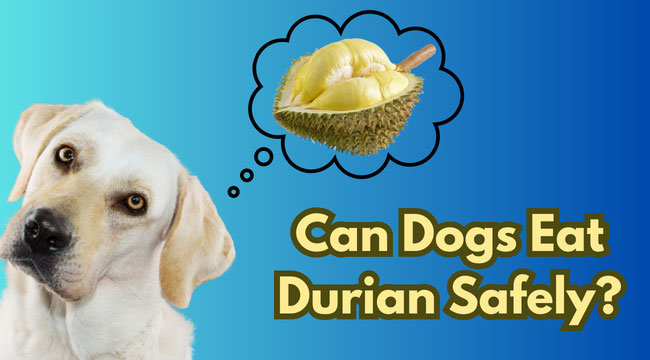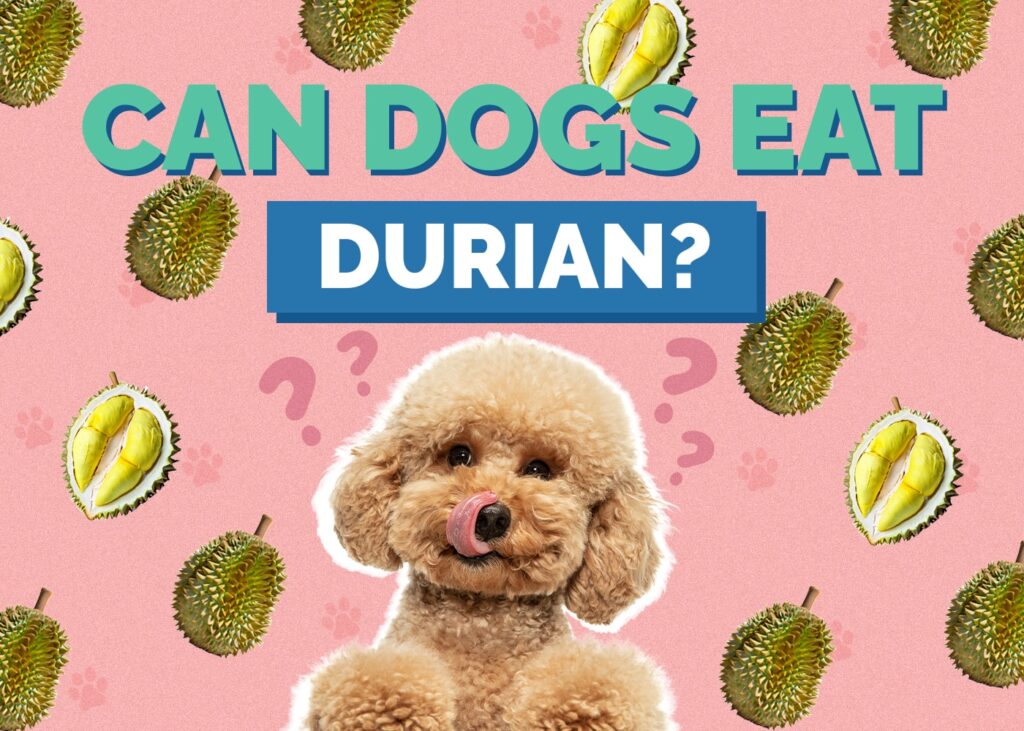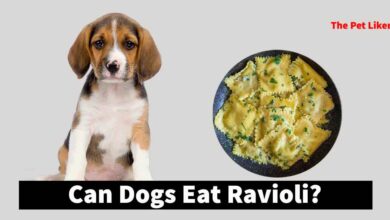Is Durian Good or Bad for Dogs? The Definitive Answer-2024

Welcome to the world of durian, a fruit that intrigues with its unique characteristics and holds a prominent place in Southeast Asian culinary traditions. Recognized for its distinctive features, durian is enveloped in a spiky exterior that protects its velvety, creamy flesh within. Its aroma, often likened to a blend of sweet almonds and pungent onions, sets it apart in the world of fruits.
Originating from tropical regions of Southeast Asia, particularly in countries like Thailand, Malaysia, and Indonesia, durian enjoys widespread popularity as the “king of fruits.” Its rich history in the region spans centuries, revered for its complex flavor and versatility in various culinary applications. From being savored fresh to being incorporated into savory dishes, desserts, and beverages, durian plays a pivotal role in local cuisine and cultural celebrations.
Nutritionally, durian offers a wealth of essential nutrients. It is notably high in vitamins, particularly vitamin C, which supports immune function and enhances iron absorption. Durian also provides an array of minerals such as potassium, manganese, and copper, crucial for maintaining overall health. Its dietary fiber content promotes digestive regularity and satiety, although its natural sugars necessitate moderation in consumption.
As you embark on a journey to explore durian, you’ll uncover not only its aromatic allure and culinary significance but also its nutritional richness that continues to captivate and inspire enthusiasts around the globe.So join us as we will explore whether- can dogs eat durian or not.

Potential Benefits of Durian for Dogs
Vitamin C: Boosts immune system function
Explanation:
- Durian contains vitamin C, an essential nutrient that supports the immune system in dogs.
- Vitamin C helps in the production of white blood cells, which are crucial for fighting off infections and maintaining overall health.
Benefits:
- Enhances the dog’s ability to resist illnesses and recover more quickly from infections.
- Supports overall immune system health, particularly during periods of stress or illness.
- B-Complex Vitamins: Supports energy metabolism and overall vitality
Explanation:
- Durian provides various B-complex vitamins, including B1 (thiamine), B2 (riboflavin), B3 (niacin), B5 (pantothenic acid), B6 (pyridoxine), and B9 (folate).
- These vitamins play essential roles in energy production, maintaining healthy skin and coat, and supporting neurological functions.
Benefits:
- Supports the dog’s metabolism by helping convert food into energy more efficiently.
- Promotes overall vitality, helping to maintain optimal health and activity levels.
- Dietary Fiber: Aids digestion and promotes gut health
Explanation:
- Durian contains dietary fiber, which is crucial for digestive health in dogs.
- Dietary fiber includes both soluble and insoluble types that help regulate bowel movements and support a healthy digestive tract.
Benefits:
- Prevents constipation and diarrhea by promoting regular bowel movements.
- Supports the growth of beneficial gut bacteria, contributing to overall gut health and immune function.
- Antioxidants: Help combat oxidative stress and inflammation
Explanation:
- Durian is rich in antioxidants such as vitamin E, vitamin A (beta-carotene), and flavonoids.
- Antioxidants protect cells from damage caused by free radicals and help reduce inflammation in the body.
Benefits:
- Neutralizes harmful free radicals, thereby reducing oxidative stress and cellular damage.
- Supports joint health by reducing inflammation, which can be beneficial for dogs with arthritis or joint issues.
Considerations
While durian offers potential benefits for dogs, it’s important to consider the following:
- Moderation: Due to its high fat and sugar content, durian should be fed in moderation to avoid weight gain and other health issues.
- Preparation: Remove seeds and the tough rind completely before feeding durian to your dog to prevent choking or digestive blockages.
- Individual Tolerance: Some dogs may have allergies or sensitivities to durian, so monitor their reaction closely when introducing this fruit.
Consulting with your veterinarian before introducing durian or any new food into your dog’s diet is recommended, especially if your dog has specific health conditions or dietary needs. This ensures that durian is suitable and safe for your dog and aligns with their overall nutritional requirements. By making informed decisions and prioritizing your dog’s health, you can integrate durian responsibly into their diet to potentially enhance their well-being.
Risks and Hazards of Feeding Durian to Dogs
Feeding durian to dogs comes with several risks and hazards that pet owners should be aware of before offering this fruit to their canine companions. Here’s a detailed look at the potential risks associated with feeding durian to dogs:
High Fat Content: Risk of pancreatitis and obesity
Explanation:
- Durian is high in fat, which can predispose dogs to pancreatitis, a painful inflammation of the pancreas.
- Pancreatitis can be triggered by consuming high-fat foods and may require veterinary treatment.
Implications:
- Feeding durian regularly or in large quantities can lead to weight gain and obesity in dogs.
- Dogs with a history of pancreatitis or those prone to digestive issues should avoid high-fat foods like durian.
- Toxic Parts (Seeds and Rind): Pose choking or intestinal blockage hazards
Explanation:
- Durian seeds are large and hard, posing a choking hazard if swallowed whole.
- The tough rind of durian is indigestible and can cause intestinal blockages if ingested.
Precautions:
- Always remove seeds completely and discard the rind before feeding durian to your dog.
- Monitor closely to ensure no accidental ingestion of these hazardous parts.
- High Sugar Content: Can contribute to obesity, diabetes, and dental issues
Explanation:
- Durian contains natural sugars that, when consumed excessively, can contribute to weight gain and obesity in dogs.
- Excessive sugar intake may also lead to insulin resistance and increase the risk of diabetes mellitus.
- Sugars in durian can promote dental plaque formation, potentially leading to dental issues like cavities.
Management:
- Feed durian in moderation and monitor your dog’s overall sugar intake from all sources.
- Consider the potential impact on weight management and dental health when offering durian as a treat.
While durian offers potential nutritional benefits such as vitamins and antioxidants, its high fat and sugar content, along with the hazards posed by its seeds and rind, make it a risky choice for dogs. Pet owners should exercise caution and consider safer alternatives with fewer risks, such as apples, blueberries, and bananas, to ensure their dog’s health and well-being. Consulting with a veterinarian before introducing durian or any new food into your dog’s diet is crucial for personalized advice and guidance based on your dog’s individual needs and health conditions. By prioritizing safety and making informed choices, you can help ensure that your dog receives a balanced and healthy diet.
The Definitive Answer: Is Durian Good for Dogs?
When considering whether durian is a suitable treat for dogs, it’s essential to weigh its potential benefits against the associated risks.
- Balanced Perspective: While durian offers nutritional benefits, the risks outweigh the benefits for most dogs
Explanation:
- Durian contains vitamins, antioxidants, and dietary fiber that can be beneficial for dogs.
- However, the high fat, sugar content, and potential hazards from its seeds and rind pose significant risks.
Considerations:
- The risks of pancreatitis, obesity, intestinal blockages, and dental issues due to the high fat and sugar content outweigh the potential benefits for many dogs.
- For most dogs, there are safer alternatives that provide similar nutrients without these risks.
- Moderation: Small amounts occasionally may be considered safe for some dogs, but caution is advised
Explanation:
- If you choose to offer durian to your dog, do so in moderation and as an occasional treat.
- Monitor closely for any adverse reactions, and adjust the amount based on your dog’s response.
Benefits of Moderation:
- Allows dogs to enjoy the unique flavor of durian without significant health risks.
- Reduces the likelihood of digestive upset or other adverse reactions.
- Consider Individual Factors: Some dogs may tolerate durian better than others, but allergies or sensitivities are possible
Explanation:
- Every dog is different, and individual tolerance to durian can vary.
- While some dogs may tolerate small amounts of durian without issues, others may experience allergic reactions or digestive upset.
Cautionary Approach:
- Introduce durian gradually and monitor your dog closely for any signs of allergies, sensitivities, or adverse reactions.
- If your dog shows any negative symptoms, discontinue feeding durian and consult with your veterinarian.
In conclusion, while durian does offer some nutritional benefits, including vitamins, antioxidants, and dietary fiber, its high fat and sugar content, along with potential choking hazards from its seeds and rind, make it a risky choice for most dogs. It is generally advisable to opt for safer alternatives like apples, blueberries, and bananas, which provide similar nutrients without the associated risks. Before introducing durian or any new food into your dog’s diet, consult with your veterinarian to ensure it aligns with your dog’s individual health needs and dietary requirements. Prioritizing your dog’s safety and well-being ensures they receive a balanced and healthy diet suited to their specific needs.
Expert Opinions and Veterinary Insights on Feeding Durian to Dogs
Veterinarians and experts generally advise caution when considering durian as a treat for dogs, emphasizing potential health risks and recommending safer alternatives.
- Veterinary Perspective: Generally not recommended due to potential health risks
Explanation:
- Veterinarians caution against feeding durian to dogs due to its high fat and sugar content, which can lead to obesity, diabetes, and pancreatitis.
- The risk of digestive issues, including intestinal blockages from durian seeds and rind, further underscores its potential dangers.
Professional Advice:
- Veterinary professionals suggest avoiding durian and opting for safer fruit alternatives that provide similar nutritional benefits without the associated risks.
- Nutritional Advice: Recommend safer alternatives that provide similar benefits without the risks
Explanation:
- Nutritionists and dietitians specializing in pet nutrition recommend alternatives such as apples, blueberries, strawberries, bananas, and watermelon.
- These fruits offer vitamins, antioxidants, and dietary fiber beneficial to dogs, while being lower in fat and sugar content compared to durian.
Benefits of Safer Alternatives:
- Safer fruits support overall health without compromising digestive health or contributing to weight-related issues.
- They are generally well-tolerated by dogs and provide a variety of nutrients essential for canine health.
Based on expert opinions and veterinary insights, durian is not recommended for dogs due to its potential health risks, including high fat and sugar content, as well as choking hazards from its seeds and rind. It’s advisable to choose fruits that offer similar nutritional benefits without these risks, ensuring your dog receives a balanced and safe diet. Always consult with your veterinarian for personalized advice on your dog’s diet and nutritional needs to promote their health and well-being effectively.
Conclusion: Making the Right Decision for Your Dog
When it comes to choosing foods for your dog, prioritizing their health and well-being is paramount. Here’s how you can make informed decisions:
- Safety First: Prioritize your dog’s health by avoiding foods with known risks like durian
Explanation:
- Durian poses several risks to dogs, including high fat and sugar content, potential choking hazards from seeds and rind, and digestive issues.
- These risks can lead to serious health conditions such as obesity, diabetes, pancreatitis, and intestinal blockages.
Importance:
- By avoiding foods like durian that are known to pose health risks, you can prevent unnecessary health problems and maintain your dog’s overall well-being.
- Alternative Options: Consider safer fruits such as apples, blueberries, bananas, and strawberries
Explanation:
- Safer fruits like apples (without seeds), blueberries, bananas, and strawberries provide similar nutritional benefits without the associated risks of durian.
- They are rich in vitamins, antioxidants, and dietary fiber that support your dog’s immune system, digestion, and overall health.
Benefits:
- These fruits are generally well-tolerated by dogs and offer a variety of flavors and textures for added dietary diversity.
- They can be incorporated into your dog’s diet as healthy treats or additions to their meals.
- Consult Your Veterinarian: Always seek professional advice before introducing new foods to your dog’s diet
Explanation:
- Your veterinarian is the best source of guidance when it comes to your dog’s nutrition and dietary needs.
- They can provide personalized recommendations based on your dog’s age, breed, health status, and any specific dietary considerations.
Advantages:
- Consulting your veterinarian ensures that any new foods, including fruits, are introduced safely and appropriately.
- They can advise on portion sizes, potential allergies or sensitivities, and monitor your dog’s response to new foods.
Final Thoughts
By prioritizing safety, choosing alternative fruits that are known to be safe for dogs, and consulting your veterinarian, you can make informed decisions about your dog’s diet. This approach not only supports their health but also enhances their enjoyment of nutritious treats that contribute positively to their overall well-being. Always remember that your veterinarian is there to provide expert advice and guidance to help you make the best choices for your beloved canine companion.



